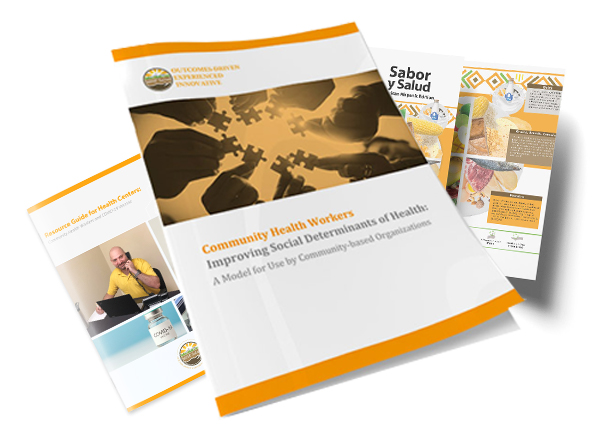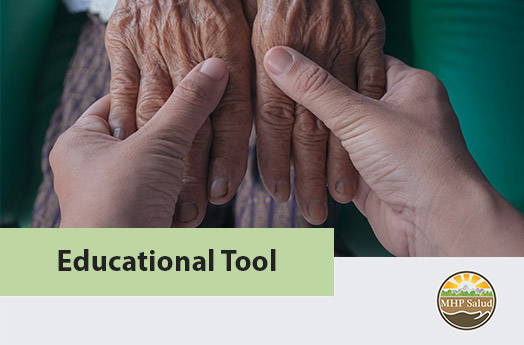Published July 2023 | Read this article in Spanish.
- Aging refers to the process of getting older.
- Diversity recognizes that people age differently and come from different backgrounds.
- Inclusion means ensuring everyone is treated fairly and has equal opportunities regardless of age.
- Community Health Workers who are culturally sensitive and practice inclusiveness can help older adults age with dignity.
Aging: A Natural Part of Life:
We have learned in the blog topic series that ageism can create negative experiences and that, as a community, we can work together to promote better health and mental health outcomes. Ageism refers to the discrimination or prejudice that older adults may face because of their age. It can happen in different aspects of an older adult’s life, at home, in the workplace, during medical appointments, in the community, and even when interacting with people they don’t know well.
We can support healthy aging by reshaping how we view aging and creating awareness for others to embrace aging as a natural part of life. Your age should not be seen as a barrier or keep you from enjoying life. Aging is a natural part of life; each day brings new experiences and opportunities that everyone has a right to enjoy.
A Diverse Aging Population Snapshot
Recent data from the 2020 U.S. Census Bureau highlights that 1 in 6 People in the United States were 65 and over, which includes evolving demographics characterized by an aging population and increasing diversity. Diversity includes race, ethnicity, language, gender, socio-economic status, physical abilities, sexual orientation, education, where someone lives, and religion or spirituality. All these factors contribute to a person’s unique identity.
By valuing and celebrating the diversity of older adults, we can foster social interactions that combat loneliness and isolation, promoting mental well-being and a higher quality of life. All racial and Hispanic origin groups across the nation experienced population growth, exemplifying the ongoing diversification of the United States. This demographic transformation highlights our communities’ vibrant mosaic of cultures and backgrounds, emphasizing the importance of embracing and celebrating diversity.
Aging Inclusiveness!
Everyone ages differently and deserves to remain active in their daily lives and communities. When the focus remains on age, we can create a barrier between the person’s self-identity and age, contributing to self-directed ageism. When we acknowledge diversity in aging and foster inclusiveness, we can create equitable access to healthcare, promote social connections, and empower older individuals to age in a way that aligns with their preferences and needs. Age inclusiveness embraces the person rather than focusing on age. By adopting an inclusive approach, we can build a society that values and respects individuals of all ages.
CHWs Frontline Public Health Workers are Making a Difference!
CHWs American Public Health Association (APHA) defines CHWs as “frontline public health workers who are trusted members of and/or have an unusually close understanding of the community served.” CHWs can engage in various activities to address ageism and promote positive health and mental health outcomes for older adults. They can organize community awareness campaigns, educational sessions, and workshops to raise awareness about ageism and its impact. By facilitating intergenerational activities and promoting meaningful social interactions, CHWs can foster connections between different age groups and break down stereotypes.
MHP Salud offers valuable resources for new or existing programs seeking guidance on integrating Community Health Workers (CHWs). You can visit our website to explore our CHW training and integration services.
HRSA Disclaimer
This publication is supported by the Health Resources and Services Administration (HRSA) of the U.S. Department of Health and Human Services (HHS) as part of awards as follow: Health Outreach Partners (HOP) National Training & Technical Assistance Cooperative Agreement totaling $847,285.00 with 0 percent financed with non-governmental sources and MHP Salud National Training & Technical Assistance Cooperative Agreement totaling $678,959.00 with 0percent financed with non-governmental sources. The contents are those of the author(s) and do not necessarily represent the official views of, nor an endorsement, by HRSA, HHS or the U.S. Government. For more information, visit www.HRSA.gov.
Blog Topics
Related Articles:
More resources:




